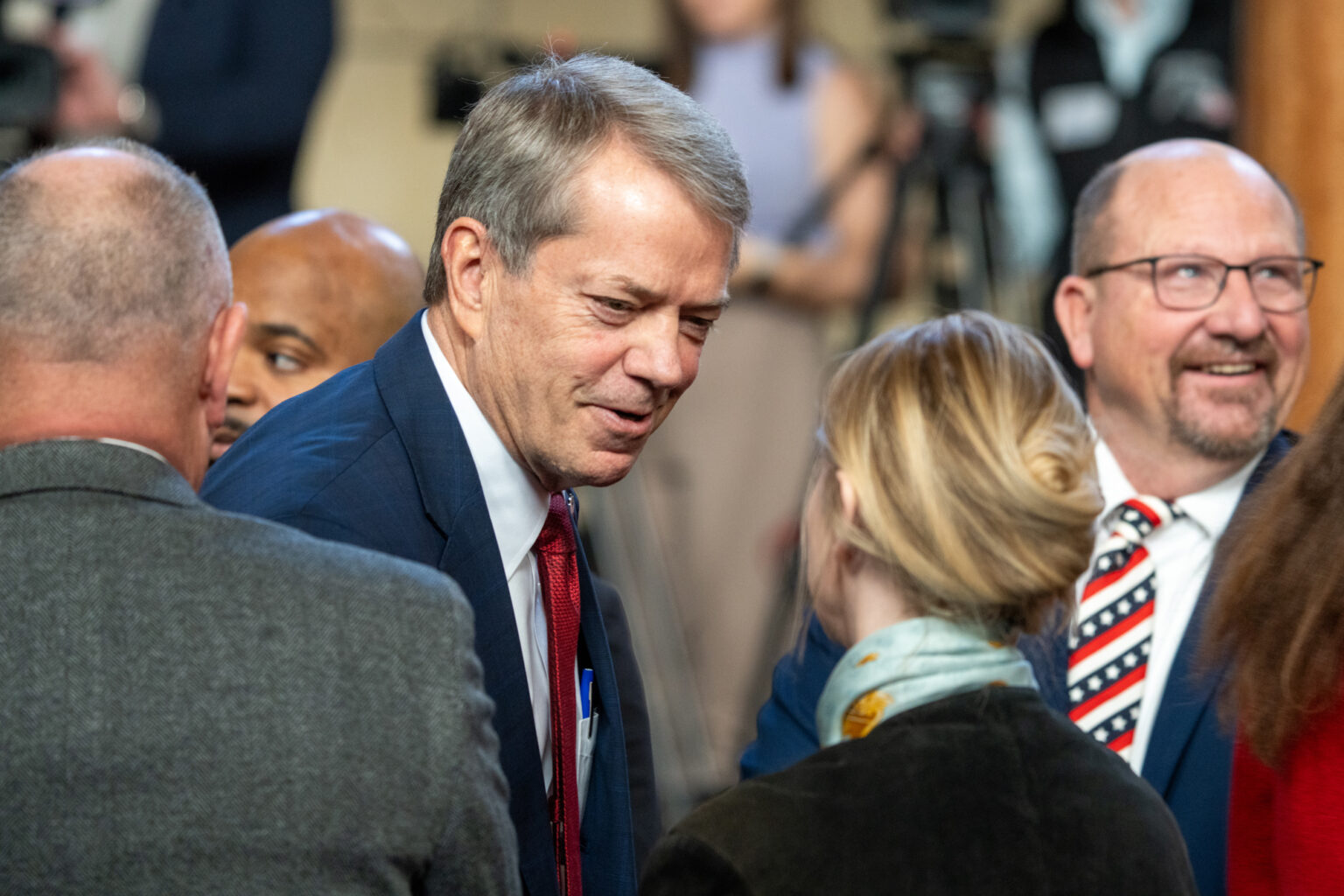
Zach Wendling/Nebraska Examiner
LINCOLN — Nebraska Gov. Jim Pillen has endorsed which way the state should lock the clocks, putting his weight behind ending twice-a-year clock changes by using permanent standard time.
In his monthly radio call-in show Monday, Pillen told a caller from Seward that as a farmer in the “pig business,” he’s “spent a lot of time trying to fool Mother Nature.” He said daylight saving time — the current position of the clocks — is a little like that.
“The hardcore reality is you really can’t fool Mother Nature, and that’s probably, in the simplest version, why, if something comes with it, I would be an advocate for having regular daylight time all year round,” Pillen said.
Clocks “spring ahead” one hour on the second Sunday in March (March 9 this year) and “fall back” one hour on the first Sunday in November (Nov. 2 this year).

Nebraska lawmakers considered three proposals this spring related to the position of the clocks and remain one vote away from sending a bill to Pillen.
As lawmakers return in 2026, they could again consider whether to lock the clocks at daylight saving time (Legislative Bill 34, usually associated with summer and later sunsets) or standard time (LB 302, usually associated with winter and earlier sunrises).
The end-of-session time crunch meant neither LB 34 or LB 302 was rescheduled for a third and final debate. If both bills passed, Pillen would get the final say.
Both bills would require surrounding states to adopt similar laws before taking effect:
- Permanent daylight saving time, LB 34 from State Sen. Megan Hunt of Omaha, would require three adjacent states to Nebraska to adopt a single year-round time.
- Permanent standard time, LB 302 from State Sen. Dave Murman of Glenvil, would require Iowa, Kansas, South Dakota and Wyoming to adopt legislation for year-round standard time. Multiple senators have said the list should include Colorado, to prevent putting southwest Nebraska on a possible “time-zone island.”
Lawmakers in Wyoming and Colorado have passed legislation endorsing daylight saving time.
Federal law currently prohibits year-round daylight saving time but allows year-round standard time, which Hawaii and Arizona (excluding the Navajo Nation) observe. President Donald Trump has voiced support for ending the twice-a-year clock changing. In April, he urged Congress to enact permanent daylight saving time.
A third Nebraska proposal, Legislative Resolution 33 from State Sen. Danielle Conrad of Lincoln, would ask Nebraska’s congressional delegation to “take affirmative action to reform the present approach to daylight saving time,” ambivalent on which way.
LR 33 did not advance from the Government, Military and Veterans Affairs Committee.
The nation briefly had year-round daylight saving time between Jan. 6, 1974, and April 27, 1975, in response to the 1973 oil and energy crisis, which Pillen said he’s old enough to recall.
Pillen said the clock changes are probably not a topic that anybody needs to plant a “flag in the middle of the field on, but, you know, we all have stuff.”
